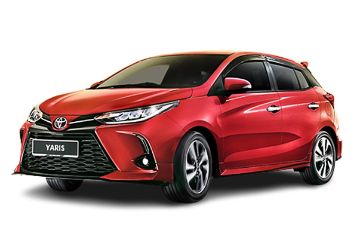![BMW i Hydrogen NEXT gets its fuel cells from Toyota 01]()
The electric future is inevitable. The only question is, will fuel cell technology catch on with battery? BMW believes that they will co-exist in the future and affirms their commitment to hydrogen fuel cell technology.
BMW Group has been working with the Toyota Motor Corporation on fuel cell technology since 2013. The BMW i Hydrogen NEXT will get its fuel cells from Toyota while BMW develops a fuel cell stack and overall system.
![BMW i Hydrogen NEXT gets its fuel cells from Toyota 02]()
window.googletag = window.googletag || {cmd: []}; googletag.cmd = googletag.cmd || []; googletag.cmd.push(function() { googletag.defineSlot('/22557728108/my_article_fourthp_under_pc', [
728,
90
], 'div-gpt-ad-1685525140735-0').addService(googletag.pubads()); googletag.pubads().enableSingleRequest(); googletag.pubads().collapseEmptyDivs(); googletag.enableServices(); });
googletag.cmd.push(function() { googletag.display('div-gpt-ad-1685525140735-0'); });
Japanese car makers have always been keen on hydrogen fuel. Nissan introduced the X-Trail FCV prototype back in 2003 and Honda released its FCX Clarity into production in 2008. Toyota has the Mirai and they have been developing fuel cell technology since the early 90s.
But back to the BMW i Hydrogen NEXT, the fuel cell system for the powertrain produces up to 170 PS of electric energy from the chemical reaction between hydrogen and oxygen from the ambient air.
![BMW i Hydrogen NEXT gets its fuel cells from Toyota 01]()
There's a battery positioned above the electric motor that boosts power, bringing the total system output to 374 PS.
It has a pair of 700 bar tanks that, together, can hold 6 kg of hydrogen. Refuelling takes takes about 3 to 4 minutes, which is not too far from traditional fossil fuel powered cars.
![BMW i Hydrogen NEXT gets its fuel cells from Toyota 02]()
Range has not been specified, but considering the Toyota Mirai offers a range of about 500 km, the i Hydrogen NEXT should at least match it.
BMW Group said that the earliest production hydrogen fuel cell vehicle will arrive no sooner than 2025, depending on market conditions and requirements.
window.googletag = window.googletag || {cmd: []}; googletag.cmd = googletag.cmd || []; googletag.cmd.push(function() { googletag.defineSlot('/22557728108/my_article_relatedmodel_above_pc', [
728,
90
], 'div-gpt-ad-1685525247138-0').addService(googletag.pubads()); googletag.pubads().enableSingleRequest(); googletag.pubads().collapseEmptyDivs(); googletag.enableServices(); });
googletag.cmd.push(function() { googletag.display('div-gpt-ad-1685525247138-0'); });










